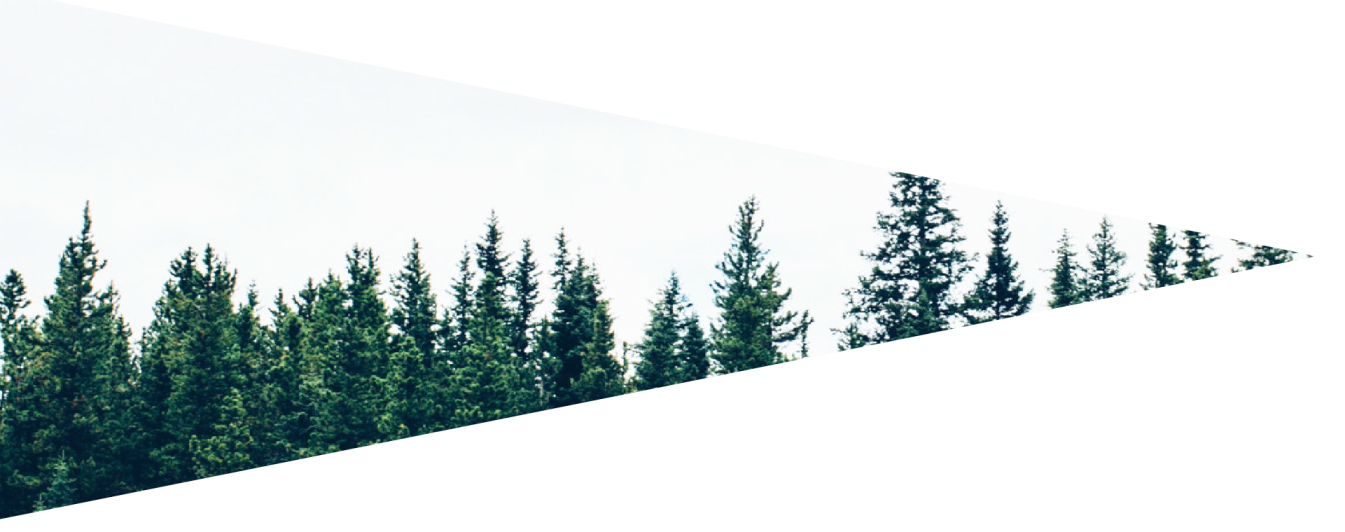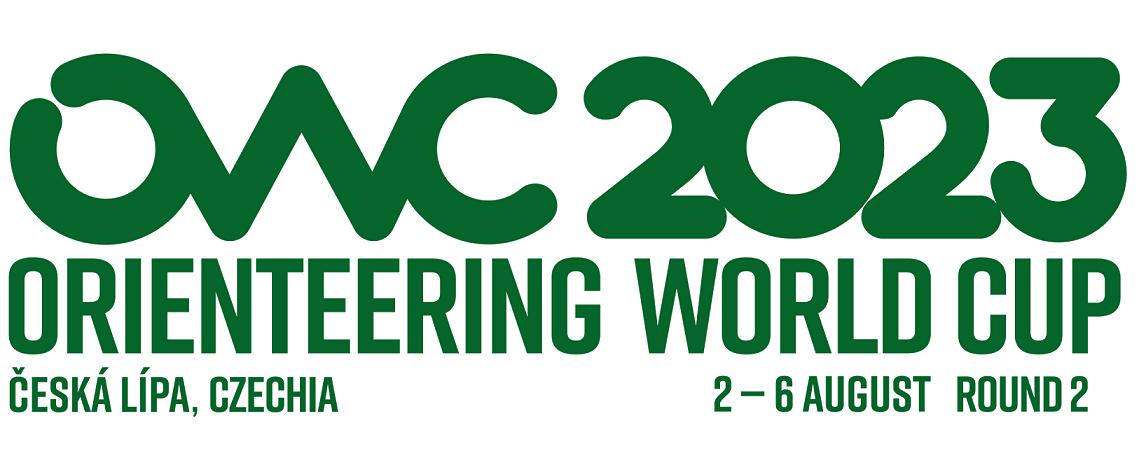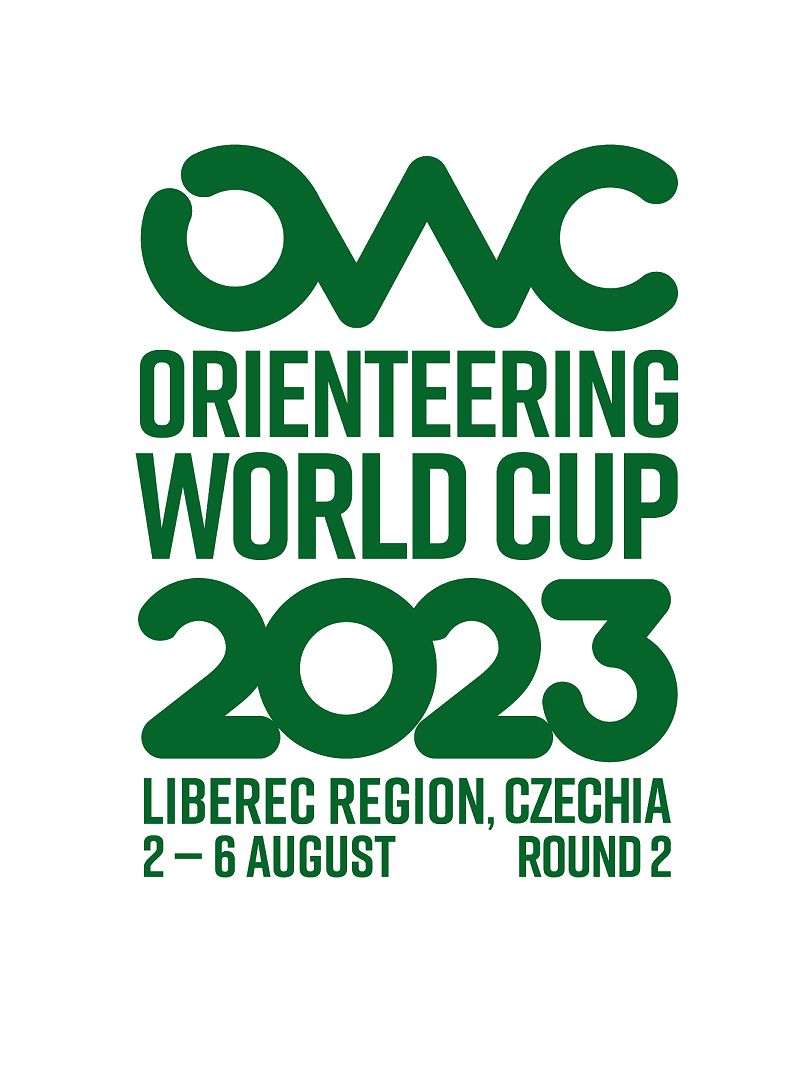Orienteering World Cup events in Czechia #3 (1994)
The Orienteering World Cup will again be hosted by the Czech Republic after 5 years. At the same time, this year marks exactly 40 years since the first unofficial edition of the Orienteering World Cup. Let’s take a look at the history of these races in the Czech Republic in the series by O-News.cz. During the winter and spring of 2023, we will offer a behind-the-scenes look at all of these international events. Today we will start with the year 1988 (Silická planina – the Slovak part of Czechoslovakia), but we will mainly focus on the final of the World Cup in Prachovské skaly, which was held here in 1994.
1988: First OWC in Slovakia
After the successfully managed year 1986, it was a logical outcome that the Orienteering World Cup will be held in Czechoslovakia again. “We were supposed to do it in Jičín again, after 1984 and 1986. The organizers were always chosen by the IOF and they were satisfied with us. But in 1988, the union bureaucracy intervened and allocated it to Slovakia,” said Jaroslav Havlík, the former chairman of the Jičín Sports Center. The World Cup in sandstone rocks was thus replaced by a different type of terrain, series of sinkholes on the Silická plain. Czechoslovakian women did very well. Jana Galíková (formerly Hlaváčová) won, Petra Wagnerová (now Novotná) took the bronze and Ada Kuchařová finished the race just behind her, in 4th place. In the men’s category, Allan Mogensen from Denmark won, the best of the Czechoslovaks was Josef Pollák, who later mapped and built a number of Slovak races in this location. The World Cup was held in Slovakia one more time, in 1998.
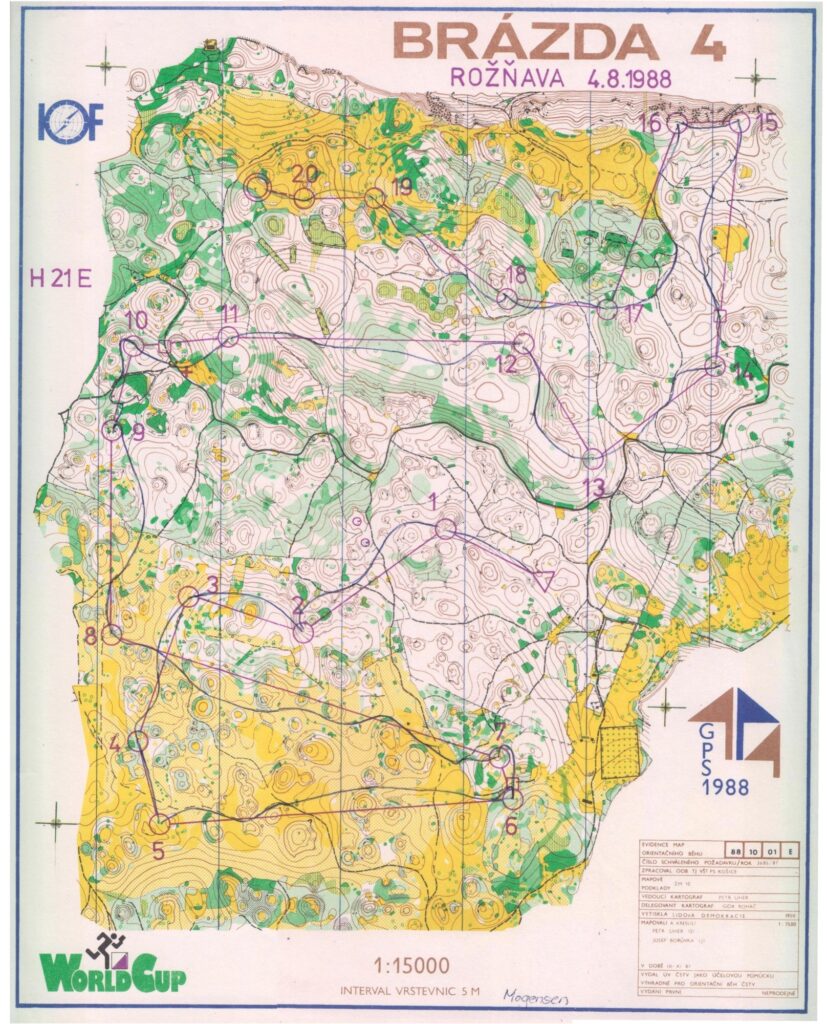
Two editions of the OWC outside the Czech Republic
After two years of the Orienteering World Cup, when none of the races were held in Czechoslovakia (but let’s remember that in 1991 the World Orienteering Championship was held in Mariánské Lázně, Czechia), in the 994 the World Cup returns again to the Czech Paradise. This time, two races awaited the competitors – a long ditance and relays in the unique sandstone terrain of the Prachovské skaly. “It was a problem to get into these spaces, but in the end we came to an agreement. We got defined zones where we are not allowed to enter, the coure setters complied, the security guards checked it and the World Cup could be run,” Petr Klimpl, one of the main organizers, told to the magazine Orientační beh. The organizing committee was led by Jiří Ticháček, and other members included Petr Klimpl, Ivan Matějů, Jiří Šubrt and Petr Hranička.
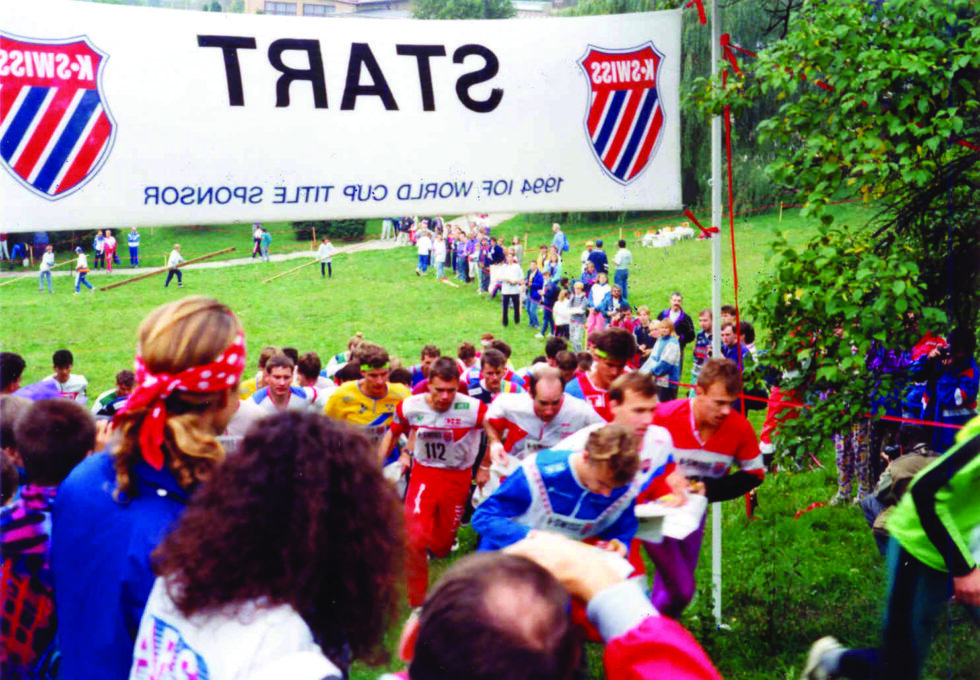
Long distance without a Czech medal
The Norwegian duo Peter Thoresen – Jon Tvedt dominated the long distance race. The first mentioned was 75 minutes and 40 seconds in the forest. The bronze medal was captured by the Swiss Thomas Bührer. The best Czech was eighth Tomáš Prokeš, he lost less than 3 minutes to the winner. Rudolf Ropek also ran very well, who regretted a mistake at the end that cost him 3rd overall in the World Cup. In the women’s category, only competitors from Sweden appeared in the first three places. In the end, Anette Nilson was the fastest (time 62:12), Maria Gustafsson finished second, Marlena Jansson won the bronze. The twenty-fourth Mária Honzová (now Kovaříková) was the best Czech. “Women had a much more difficult position, our two top competitors Cieslarová and Kubatková were injured, they did not run, and it is quite difficult to represent such personalities,” assessed the then chairman of the association, Petr Klimpl.
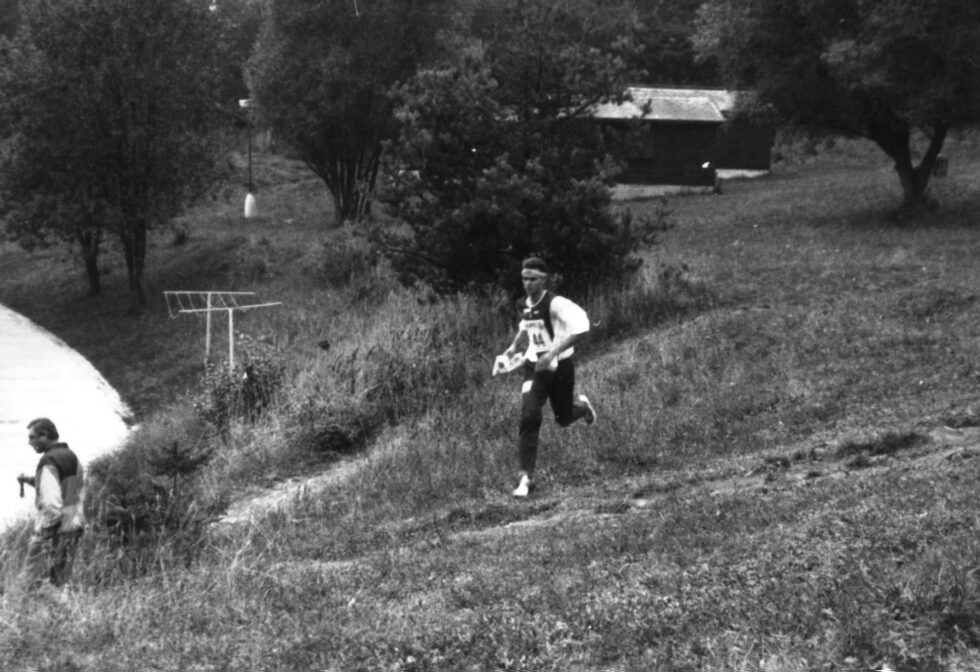
Relay bronze
In 1994, a new relay competition was created as part of the World Cup races. And it was this type of race, which also took place in Pařez, that brought the Czech representatives a medal. The men’s relay consisting of Tomáš Podmolík, Tomáš Prokeš and Rudolf Ropek won bronze medals, the Czech women (Doležalová, Honzová, Jirsová) finished sixth.
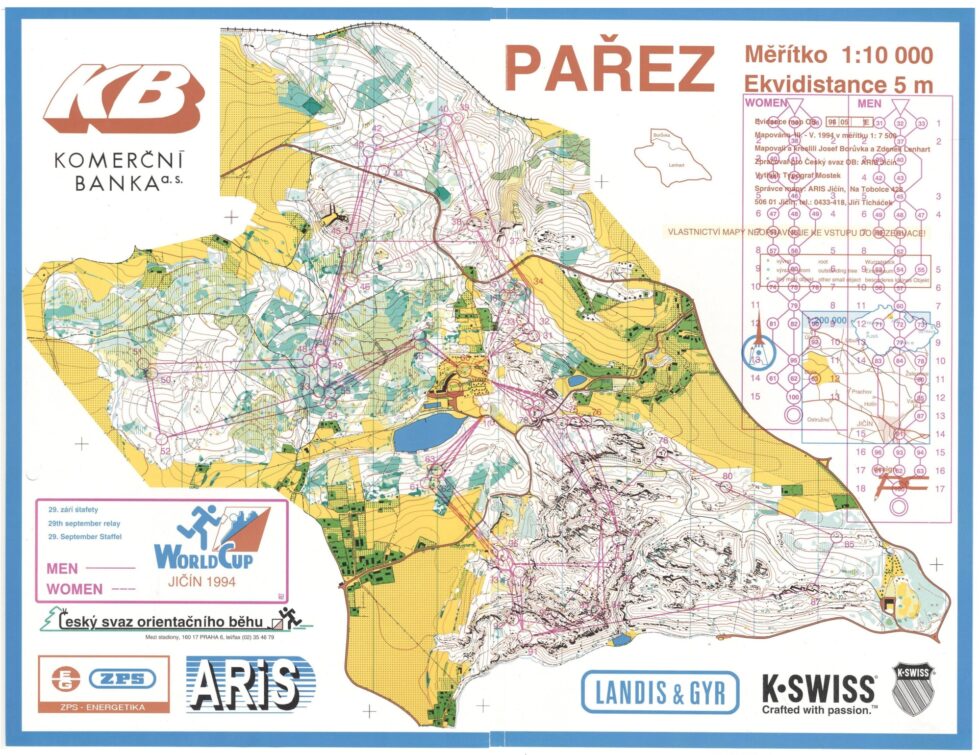
An interesting point at the end
The first three rounds of the 1994 Orienteering World Cup were held in the southern hemisphere in New Zealand and Australia. The Silva company equipped all competitors from the northern hemisphere with new compasses. After the races, the local natives wanted to buy them back. Our competitors gave them these compasses free of charge as a souvenir.
In the next part of the series, we will look at the World Cup in 2002 in Brno.
